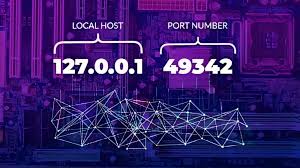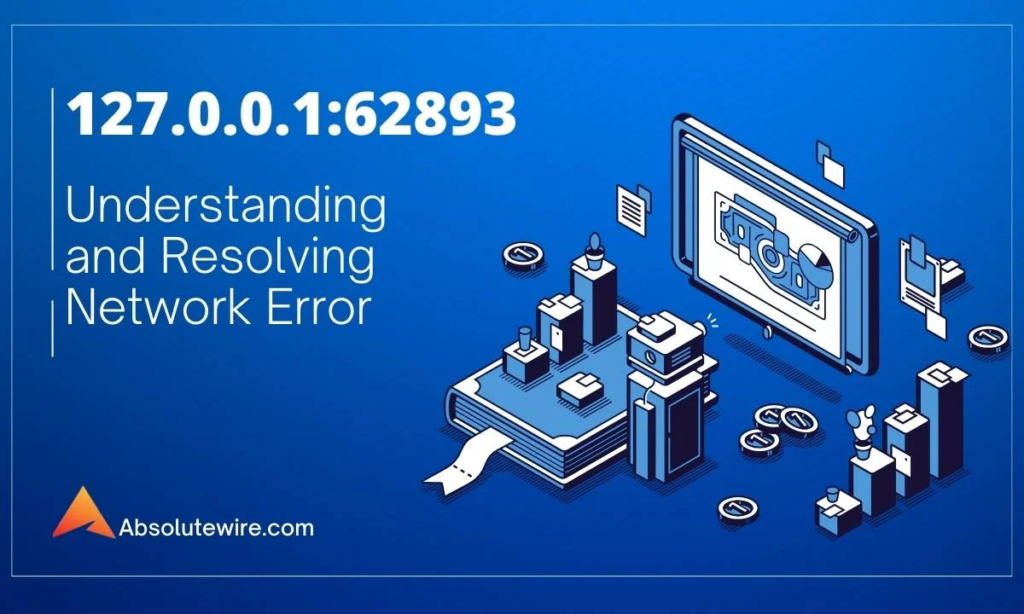Table of Contents
Introduction to 127.0.0.1:62893
As we welcome the era of connectivity, the IP address 127.0.0.1:62893 opens the doors of endless possibilities to developers and technology lovers.
But what of this number, which seems to be an obscure and abstract figure?
It is indeed much more than merely an IP address; it is a ramp of connectivity wherein lies an unimagined complement of localhost access to the future possibilities by many users.
Localhost has always been a favourite for application testing, allowing developers to create applications without disturbing the live production environment.
As we intend to go deep into this stunning issue, you will see how 127.0.0.1:62893 enhances our local development concepts by providing new and exciting concepts right before your eyes!
Be it the hot coder working on the next big thing or someone interested in the tech, understanding this connection has never been more critical for improving one’s workflow and creativity.
What is Localhost?
Localhost is a computer commonly self-defined as a networking or web development server.
When connected to the local host, you are communicating with your computer.
This allows the creation of an environment that enables developers to test applications without external servers, like a sandbox for private experiments.
The commonly used IP address for localhost is 127.0.0.1, which indicates a loopback to the local computer and is excellent for testing websites or software before deployment.
Many programming languages and frameworks also come with tools that include the local host functionality, thus making development processes easier.
The localhost approach also helps reduce complexities in debugging as it addresses related issues locally rather than using remote configurations.
It nurtures innovation while shielding the application development from outside disturbances during the application build phases.
The Evolution of Localhost Connectivity

The area of local host connectivity has witnessed tremendous growth.
Initially, it was designed as a loopback interface for testing purposes.
This local address was essential in almost all cases when the application was required to be tested without the availability of a server.
As the web technology evolved, localhost functionality also improved.
As developers created distributed and production-like environments, virtual machines, containers, and applications emerged.
This shift enhanced the security and performance of the applications while allowing even more elaborate designs.
The emergence of software like Docker completely changed the game regarding local host connections.
Developers can now deploy stacks in seconds by simply using previously defined images.
The availability of these resources has made it even simpler to try out new ideas quickly.
As more ports like 62893 are introduced, significant work is still being done on the local host interfaces.
These developments have set the stage for a more dynamic app development process focusing on speed.
How 127.0.0.1:62893 Works
In the context of localhost listening, the port 127.0.0.1:62893 can be denoted.
In other words, it refers to your computer, allowing two programs running on the same computer to talk to each other without problems.
Port 62893 is a dedicated communication port.
This implies that different services can work simultaneously without the risk of one interfering with the other while still utilizing the same local resources.
Whenever you enter an address in the web browser or an application, this address gets you to the specific port number on one’s machine.
This feature allows developers and users to conduct tests or retrieve web pages without external connections.
As such practices are extended through such setups, how efficiently and quickly are regular traffic requests processed through this network configuration?
It’s about establishing an infrastructure where testing and debugging are straightforward and uncomplicated.
Benefits of Using 127.0.0.1:62893
There are significant merits of using 127.0.0.1:62893 for developers and technology enthusiasts simultaneously.
To begin with, one reasonably does not have to rely on external servers while performing application testing.
One can perform local testing without deploying the code on any cloud or server.
Therefore, any amendments would be made directly, making it easier to implement a change.
Furthermore, confidentiality remains one of the most significant advantages.
Since everything is done in the local environment, confidential information is kept off limits to external intruders during the testing phase.
Further, it enables users of the address 127.0.0.1:62893 to easily recreate different types of network environments that they want to work with.
Developers can create predetermined scenarios and test how their software will handle different loads or settings.
This advancement further enhances teamwork among the various teams because everyone can reproduce the problems on their machine.
After all, the environment is the same, and team members can avoid fighting with each other for the same resources and production environments that are always out of sync because of the never-ending number of builds in a live system.
Using this particular localhost connection increases effectiveness and reduces the loss of control in the development cycle.
Potential Applications for 127.0.0.1:62893
There are many possible uses of the IP address 127.0.0.1:62893, from terrible developers to amazing people who love technology.
A good example is developing web environments. Developers can build and test applications locally without the risk of hacking.
Another aspect would be ensuring communications are secure. Since it is a local host, users can initiate secure links to send critical information and reduce the attack surface.
Even data visualization tools have an advantage in this configuration.
With the help of 127.0.0.1:62893, data such as datasets may be kept in locals as complex functions without compromising the system’s speed.
Also, educational services use this technology to teach programming and networking principles.
Gaming servers are another example of a system that facilitates fast connections for people playing multiplayer games in a secure environment.
More and more professionals are applying this system’s benefits in different fields, so the outlook seems quite interesting.
Future Developments and Possibilities
The potential that 127.0.0.1:62893 holds in the future is beyond comprehension.
In the same way that future inventions will transform industries, the same will apply to this particular port’s use cases in testing and developing software.
Imagine a scenario where developing teams can link different local environments without worrying about configuration issues.
Such a practice could completely change the way application testing is done.
Additionally, with the increasing usage of IoT devices, 127.0.1:62893 will likely become an integral tool for managing multiple local device interconnections.
Artificial intelligence could integrate automated protocols to take this protocol one step further and eliminate the need for manual troubleshooting and diagnostics on devices.
A prominent increase in developers who will spot its flexibility will give birth to collaborative algorithms centered around the local host address, which encourages pace and creativity in a coding environment in real time.
There is so much potential as we wait to find new frameworks and technologies that will utilize the power of 127.0.0.1:62893 and allow us to create an interrelated ecosphere in a way we have never made before.
Conclusion
The appearance 127.0.0.1:62893 should be seen as a revolution in how a localhost connection is perceived and used. Technology revolutionizes our understanding of a local network.
This helpful solution makes the interaction between developers or users and their systems more productive and uncomplicated. 127.0.0.1:62893 is not simply an improvement to a conventional method of manipulating a local host.
It is a total reconceptualization of local connections.
Expanding adoption of this modern standard makes it possible to develop new areas for development and cooperation in web design, software development, and data management.
Its potential is excellent, and it holds many promising advancements that will change the development of the technology itself.
FAQs:
How does 127.0.0.1:62893 improve development processes?
It allows local testing without relying on external servers.
What advantages are there in the utilization of 127.0.0.1:62893?
Increased security and privacy and the possibility of building one’s testing situations.
What applications or projects can be enhanced by using 127.0.0.1:62893?
Web application development, data visualization, teaching, and game development.
